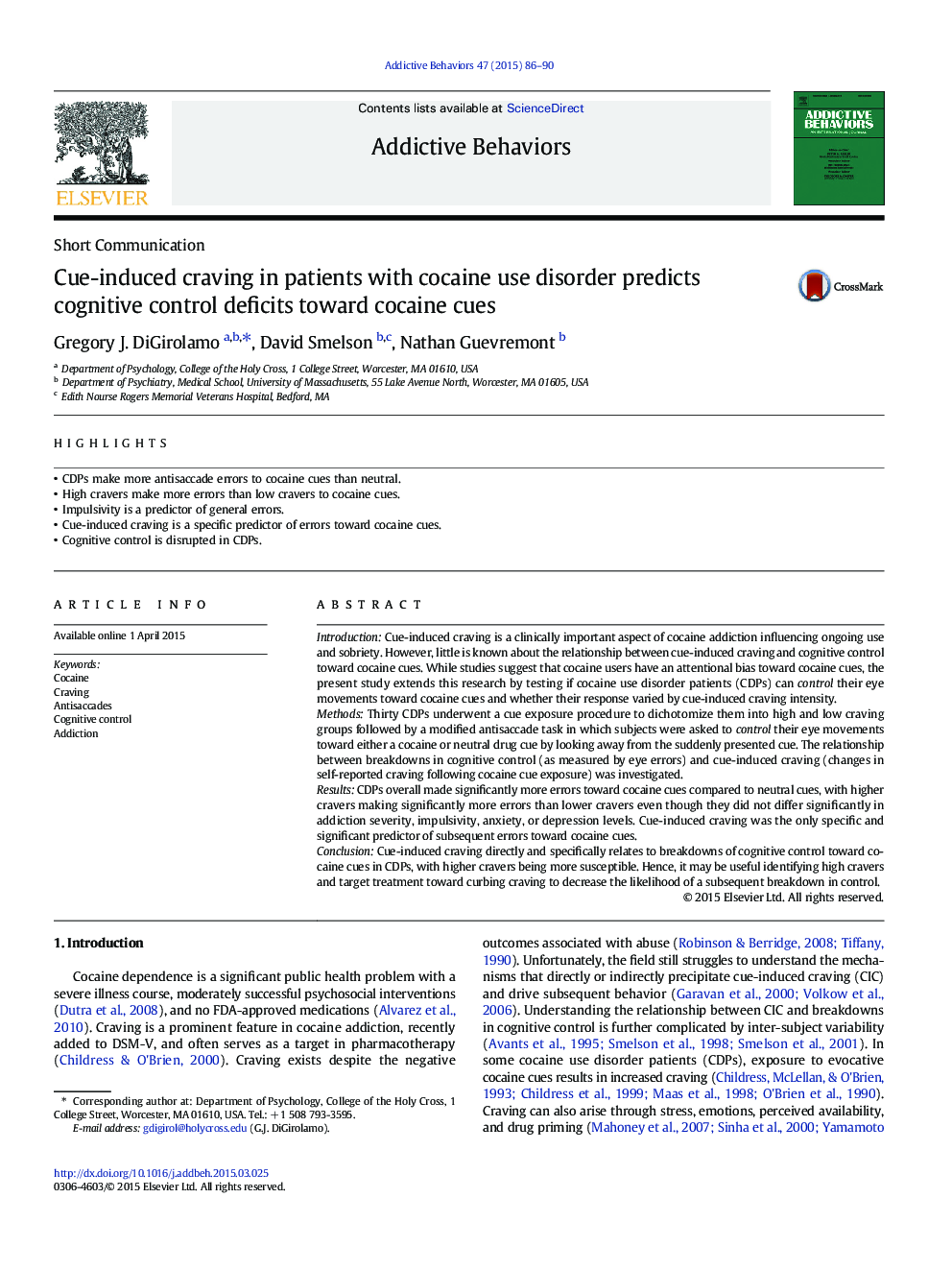| کد مقاله | کد نشریه | سال انتشار | مقاله انگلیسی | نسخه تمام متن |
|---|---|---|---|---|
| 898729 | 1472524 | 2015 | 5 صفحه PDF | دانلود رایگان |
• CDPs make more antisaccade errors to cocaine cues than neutral.
• High cravers make more errors than low cravers to cocaine cues.
• Impulsivity is a predictor of general errors.
• Cue-induced craving is a specific predictor of errors toward cocaine cues.
• Cognitive control is disrupted in CDPs.
IntroductionCue-induced craving is a clinically important aspect of cocaine addiction influencing ongoing use and sobriety. However, little is known about the relationship between cue-induced craving and cognitive control toward cocaine cues. While studies suggest that cocaine users have an attentional bias toward cocaine cues, the present study extends this research by testing if cocaine use disorder patients (CDPs) can control their eye movements toward cocaine cues and whether their response varied by cue-induced craving intensity.MethodsThirty CDPs underwent a cue exposure procedure to dichotomize them into high and low craving groups followed by a modified antisaccade task in which subjects were asked to control their eye movements toward either a cocaine or neutral drug cue by looking away from the suddenly presented cue. The relationship between breakdowns in cognitive control (as measured by eye errors) and cue-induced craving (changes in self-reported craving following cocaine cue exposure) was investigated.ResultsCDPs overall made significantly more errors toward cocaine cues compared to neutral cues, with higher cravers making significantly more errors than lower cravers even though they did not differ significantly in addiction severity, impulsivity, anxiety, or depression levels. Cue-induced craving was the only specific and significant predictor of subsequent errors toward cocaine cues.ConclusionCue-induced craving directly and specifically relates to breakdowns of cognitive control toward cocaine cues in CDPs, with higher cravers being more susceptible. Hence, it may be useful identifying high cravers and target treatment toward curbing craving to decrease the likelihood of a subsequent breakdown in control.
Journal: Addictive Behaviors - Volume 47, August 2015, Pages 86–90
